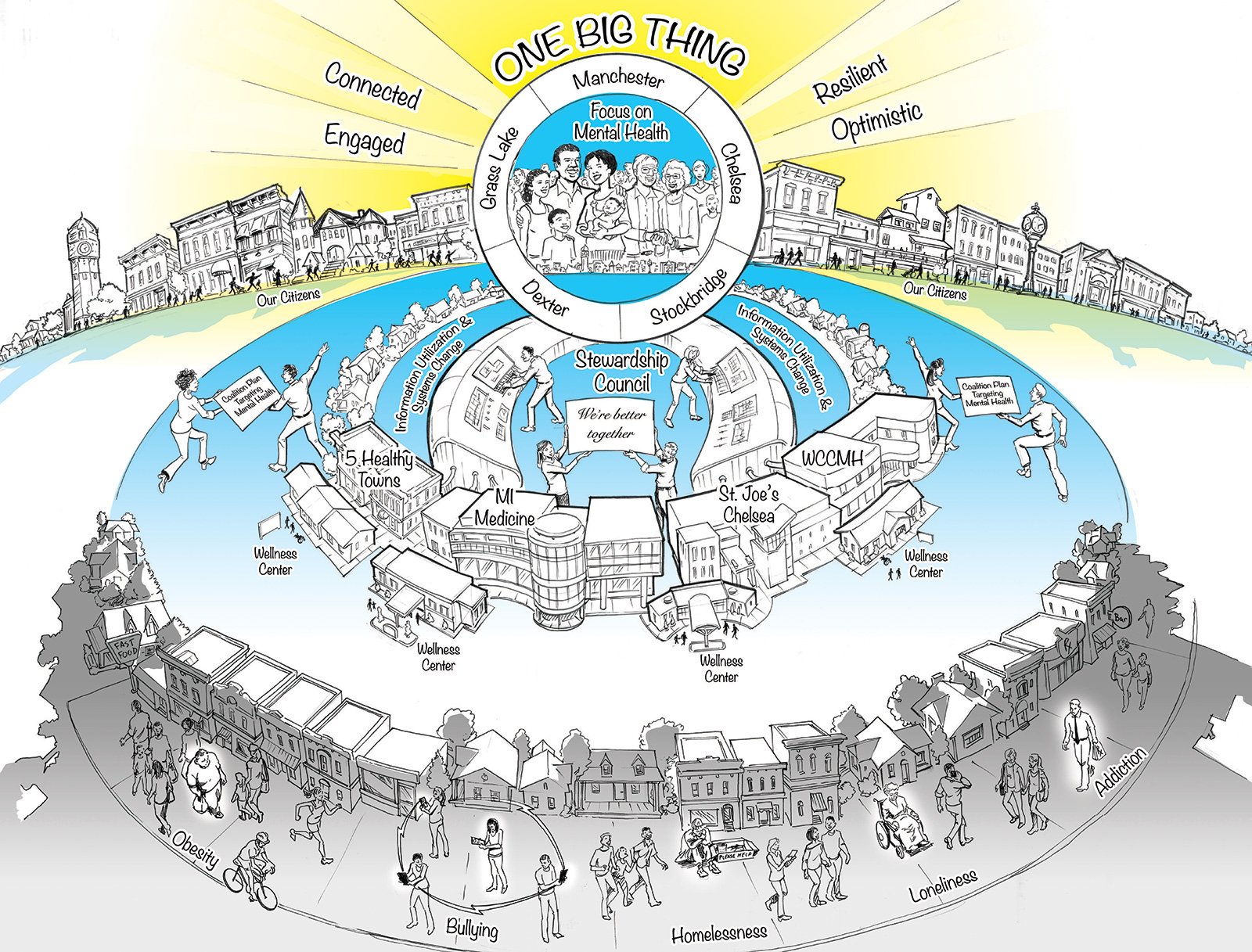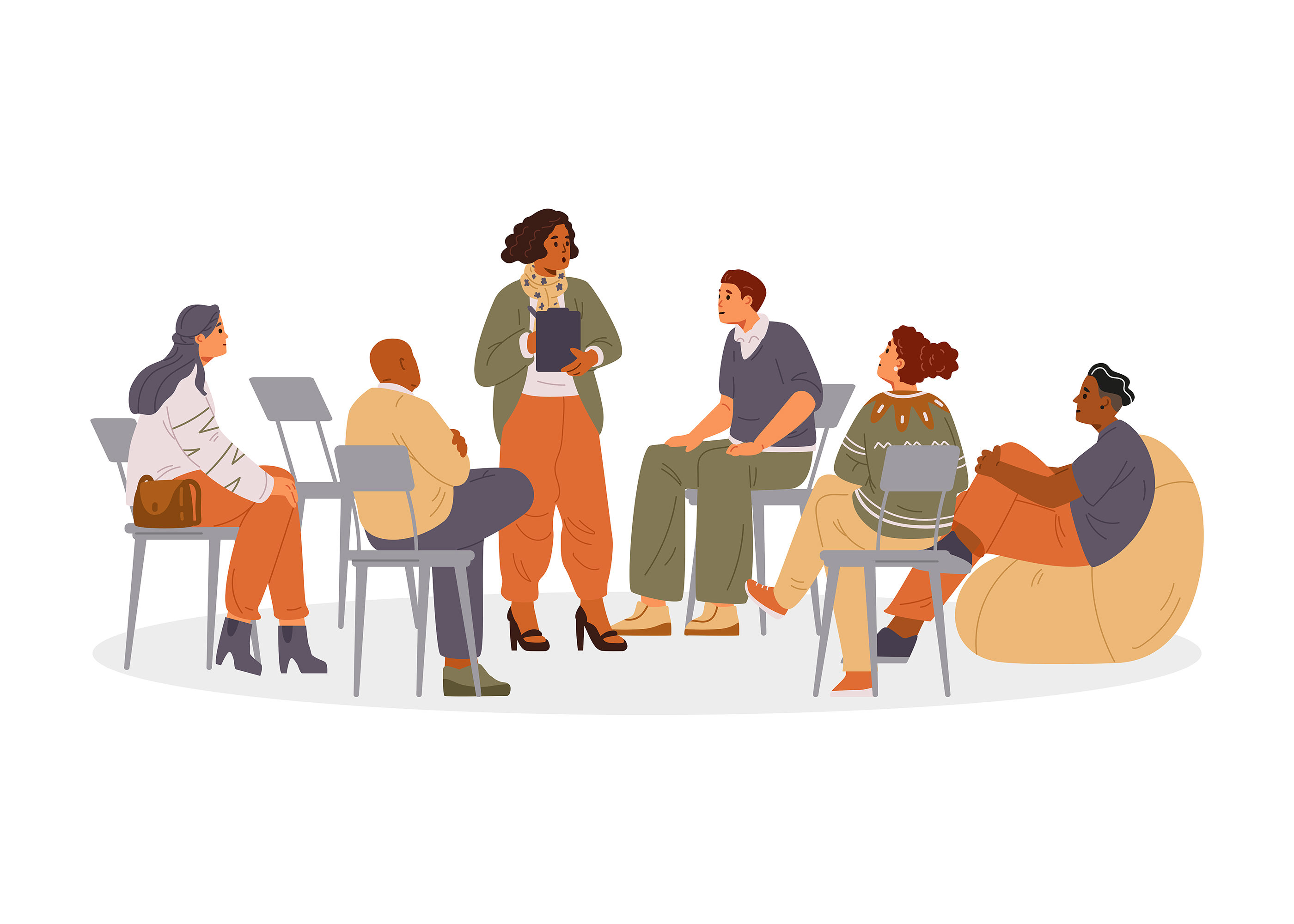Servicing western Washtenaw.
Since 2019, with millage support, the 5 Healthy Towns Foundation (5HF) has convened stakeholders to improve health and well-being on the county’s Westside, launching the One Big Thing initiative. One Big Thing tackles mental and community health along three fronts, with three corresponding action teams—social isolation and sense of purpose; barriers to resources, including food and transportation; and use of alcohol and other drugs.
The action teams worked to build referral networks and partnerships with key service providers and community stakeholders, including schools, hospitals, and senior centers in underrepresented and rural parts of the county.
Convene roughly 50 people at each OBT community meeting, representing more than 30 local organizations.
Partner with 25 workplaces to distribute resources focused on employee health and well-being, including 5 videos.
Approve or install Narcan sites in Grass Lake, Dexter, Manchester, and Stockbridge, making Narcan free and accessible to residents





